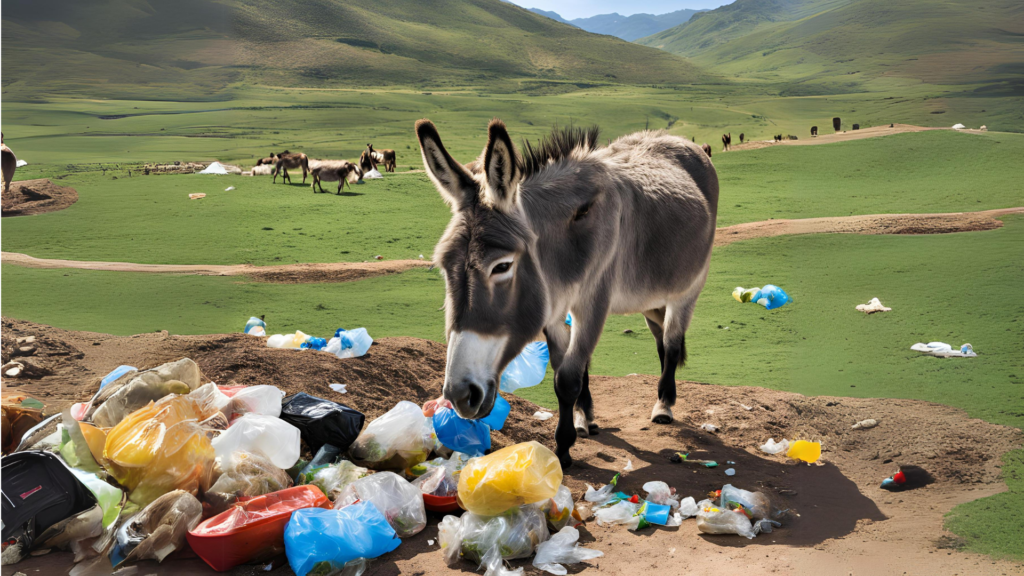

In Kenya, over 500 donkeys and numerous other animals have died from eating plastic waste. This tragic situation highlights a growing global problem. As the world’s population increases, so does the amount of waste we produce. While plastic pollution is a worldwide issue, third-world countries suffer the most.
Kenya is just one example. In India, there’s a massive trash mountain in Ghazipur. Pakistan, Iran, Bangladesh, and other countries also face severe plastic waste problems. These nations often lack the infrastructure to manage waste properly, leading to severe environmental and health issues.
“We have lost many donkeys to plastic,” says John Mwangi, a donkey owner in Kenya. “They eat it thinking it’s food, but it kills them. It’s heart breaking to see our animals suffer like this.”
Local farmer Aisha Kilonzo adds, “It’s not just donkeys. Our cows and goats are also affected. We need help to clean up this mess before more animals die.”
Government officials acknowledge the problem but say that solutions require time and resources. “We are aware of the issue and are working on improving waste management systems,” says Environment Minister Peter Kamau. “However, this is a complex problem that needs cooperation from both the public and private sectors.”
The Impact of Plastic Waste
- Environmental Damage: Plastic waste clogs rivers, pollutes oceans, and harms wildlife. Animals mistake plastic for food, leading to fatal blockages and poisoning.
- Human Health Risks: As plastic breaks down, it releases toxic chemicals. These chemicals can contaminate water supplies and enter the food chain, posing significant health risks to humans.
- Economic Costs: Cleaning up plastic waste is expensive. Developing countries often cannot afford proper waste management systems, leading to ongoing environmental degradation.
Also Read
Maltodextrin: The Silent Threat in Your Food!
Steps to Combat Plastic Pollution
- Reduce Plastic Use: We need to reduce our reliance on single-use plastics. Simple changes, like using reusable bags and bottles, can make a big difference.
- Improve Waste Management: Investing in better waste management infrastructure is crucial, especially in developing countries.
- Raise Awareness: Educating people about the dangers of plastic pollution and encouraging responsible waste disposal can help reduce the problem.
- Support Policies and Initiatives: Governments and organizations must implement and enforce policies to reduce plastic production and improve recycling efforts.
Plastic pollution is a pressing global issue. While it affects all nations, developing countries bear the brunt of the problem. By reducing plastic use, improving waste management, raising awareness, and supporting effective policies, we can combat this crisis. Our actions today will determine the health of our planet and its inhabitants tomorrow. Let’s act now to prevent further destruction and ensure a sustainable future for all.